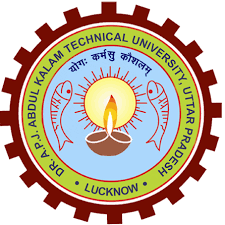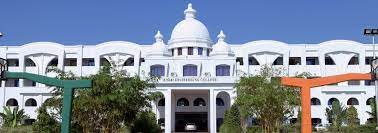B.Tech. in Fire & Industrial Engineering (Lateral Entry) offers a dynamic future with expertise in fire safety, risk management, and industrial safety. Graduates contribute to safety consulting, risk assessment, and firefighting, ensuring a rewarding career.
Future Scope & Benefits for Bachelor of Technology (B.Tech.) in Fire & Industrial Engineering (Lateral Entry)
The Bachelor of Technology (B.Tech.) in Fire and Industrial Engineering (Lateral Entry) offers a promising future with specialized expertise in fire safety, risk management, and industrial safety. Graduates are well-positioned for dynamic roles such as safety consultants, risk assessors, and firefighting professionals. The program's immediate specialization, hands-on training, and emphasis on emerging safety technologies provide a competitive edge in the job market. As industries increasingly prioritize safety standards, B.Tech. Fire and Industrial Engineering (Lateral Entry) graduates contribute significantly to workplace safety and risk mitigation.
Future Scope for Bachelor of Technology (B.Tech.) in Fire & Industrial Engineering (Lateral Entry):
The future scope for individuals with a Bachelor of Technology (B.Tech.) in Fire & Industrial Engineering (Lateral Entry) is promising and dynamic. With expertise in fire safety, risk management, and industrial safety, graduates are well-positioned for a range of roles in safety consulting, risk assessment, and firefighting.
-
Rising Demand for Safety Professionals: The global emphasis on safety in industrial and commercial settings is on the rise. B.Tech. graduates in Fire & Industrial Engineering are well-positioned to meet the growing demand for safety professionals. Industries, including manufacturing, energy, and construction, are increasingly recognizing the importance of comprehensive safety measures.
-
Emerging Technologies in Safety: The future scope of Fire and industrial Engineering involves staying abreast of emerging technologies in safety. This includes the integration of artificial intelligence, sensor technologies, and data analytics to enhance industrial safety measures. Graduates can contribute to the development and implementation of advanced safety systems.
-
Global Safety Standards and Compliance: As businesses operate on a global scale, there is a need for professionals who understand and can implement international safety standards. B.Tech. graduates may find opportunities to work on projects that involve ensuring compliance with safety regulations across different regions and industries.
-
Disaster Management and Preparedness: With the increasing frequency of natural disasters and industrial accidents, there is a growing need for professionals who can contribute to disaster management and preparedness. B.Tech. graduates may find roles in designing and implementing emergency response plans and systems.
-
Health and Environmental Safety: Beyond traditional industrial safety, there is a heightened focus on health and environmental safety. B.Tech. graduates can contribute to designing systems that not only protect workers but also ensure environmental sustainability and the well-being of communities surrounding industrial sites.
-
Smart Cities and Infrastructure Safety: The development of smart cities involves integrating safety measures into urban planning. Graduates can play a role in ensuring the safety of critical infrastructure, including transportation systems, utilities, and public spaces. This aligns with the broader trend of creating safer and more sustainable urban environments.
-
Career Opportunities in Diverse Industries: B.Tech. in Fire and Industrial Engineering opens doors to career opportunities in diverse industries, including manufacturing, oil and gas, chemical processing, construction, and more. Graduates may find roles in safety management, risk assessment, and consulting.
-
Research and Development in Safety Technologies: The future of Fire and industrial Engineering includes opportunities for research and development. Graduates may engage in projects focused on developing innovative safety technologies, processes, and equipment to address evolving challenges.
Benefits of Bachelor of Technology (B.Tech.) in Fire & Industrial Engineering (Lateral Entry):
The benefits of pursuing a Bachelor of Technology (B.Tech.) in Fire & Industrial Engineering (Lateral Entry) are considerable. This program allows individuals with prior technical education to enter directly into the advanced stages of fire safety and industrial safety management studies. The curriculum focuses on crucial aspects like risk assessment and firefighting techniques, providing practical skills alongside theoretical knowledge.
-
Specialized Expertise: B.Tech. programs provide specialized expertise in fire and industrial safety, giving graduates a deep understanding of the principles and practices in this field.
-
Advanced Standing: Lateral entry allows individuals with a diploma to enter directly into the later stages of the B.Tech. program. This advanced standing accelerates the completion of the degree.
-
Versatility in Career Paths: Graduates can pursue diverse career paths, including roles in safety management, risk assessment, emergency response planning, and consulting. This versatility allows for career growth and adaptation to different industries.
-
Global Recognition: A B.Tech. degree is widely recognized and respected globally. This recognition enhances the mobility and career prospects of graduates, especially in industries that adhere to international safety standards.
-
Hands-on Experience: B.Tech. programs often include practical training and projects, providing graduates with hands-on experience in implementing safety measures. This practical exposure is valuable in real-world scenarios.
-
Networking Opportunities: B.Tech. programs provide networking opportunities with professionals, faculty, and fellow students. Networking can be valuable for career advancement, collaboration on projects, and staying informed about industry trends.
-
Leadership Positions: With advanced education, B.Tech. graduates have the potential to move into leadership positions in safety management, where they can contribute to shaping organizational safety policies and practices.
-
Contribution to Public Safety: Graduates of Fire and industrial Engineering play a crucial role in ensuring public safety by implementing measures that protect not only workers but also the broader community. This contribution aligns with a sense of social responsibility and ethical practices.
 3 Years
3 Years
 Under Graduate
Under Graduate
 Engineering
Engineering
 Full Time
Full Time





















 back
back

